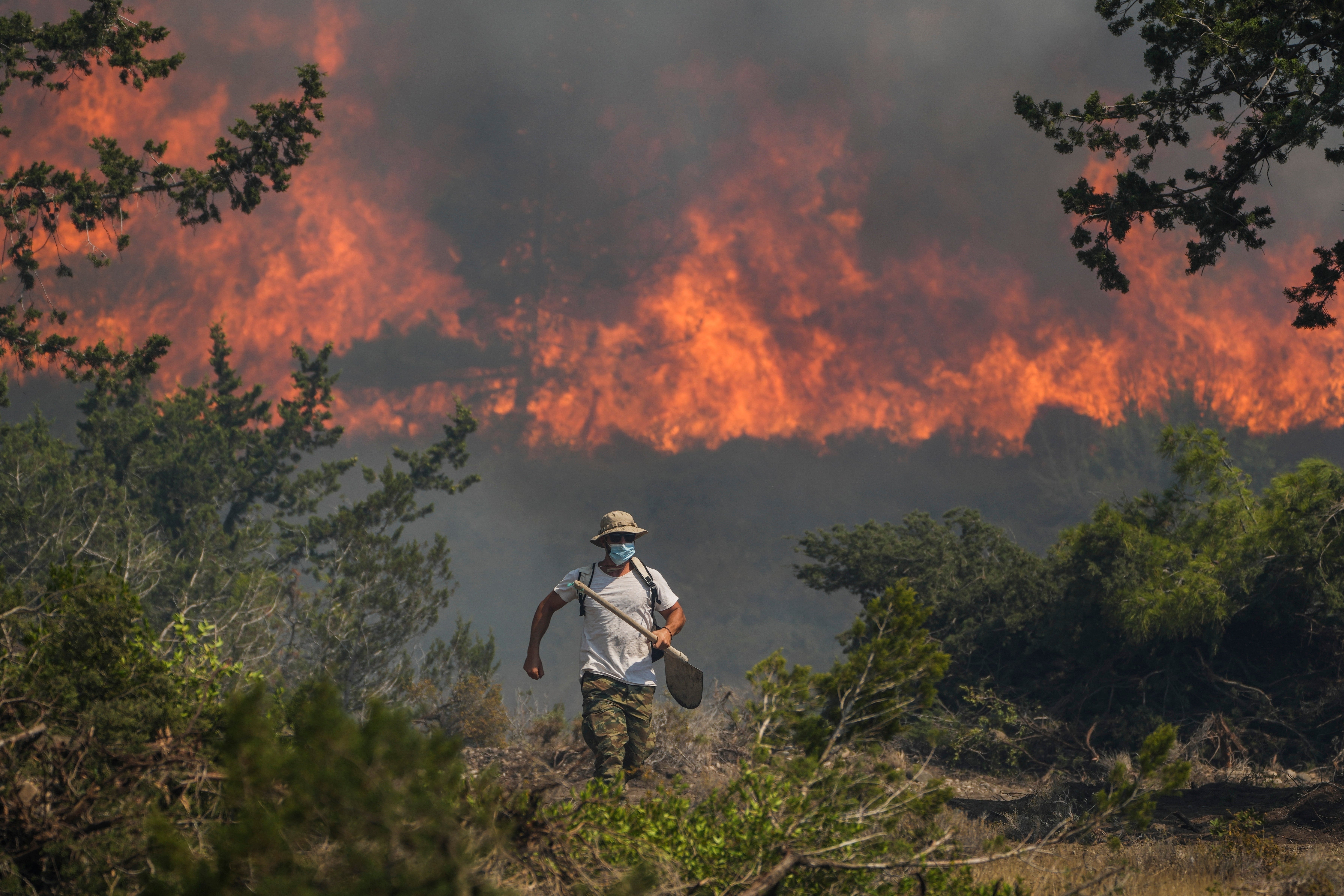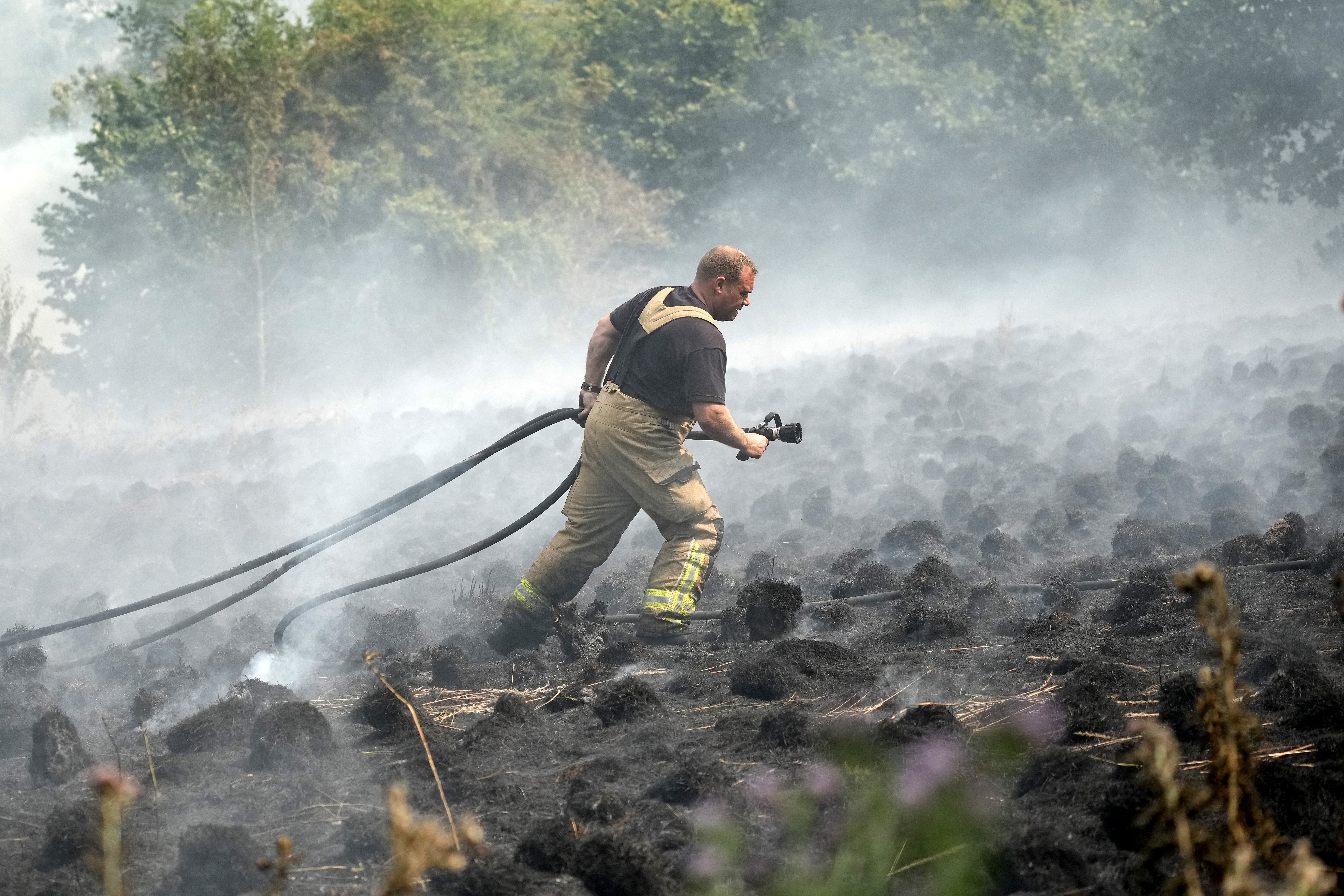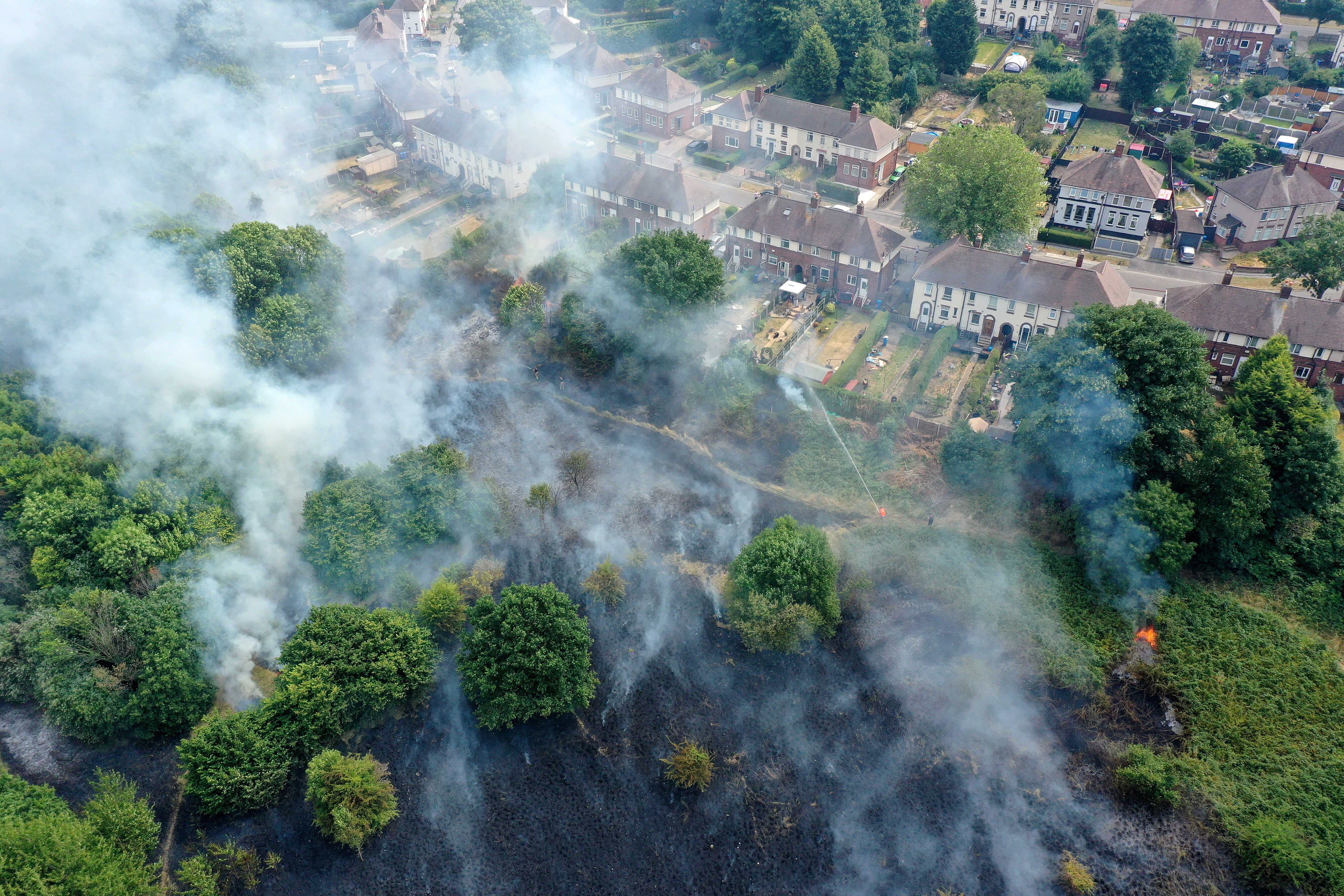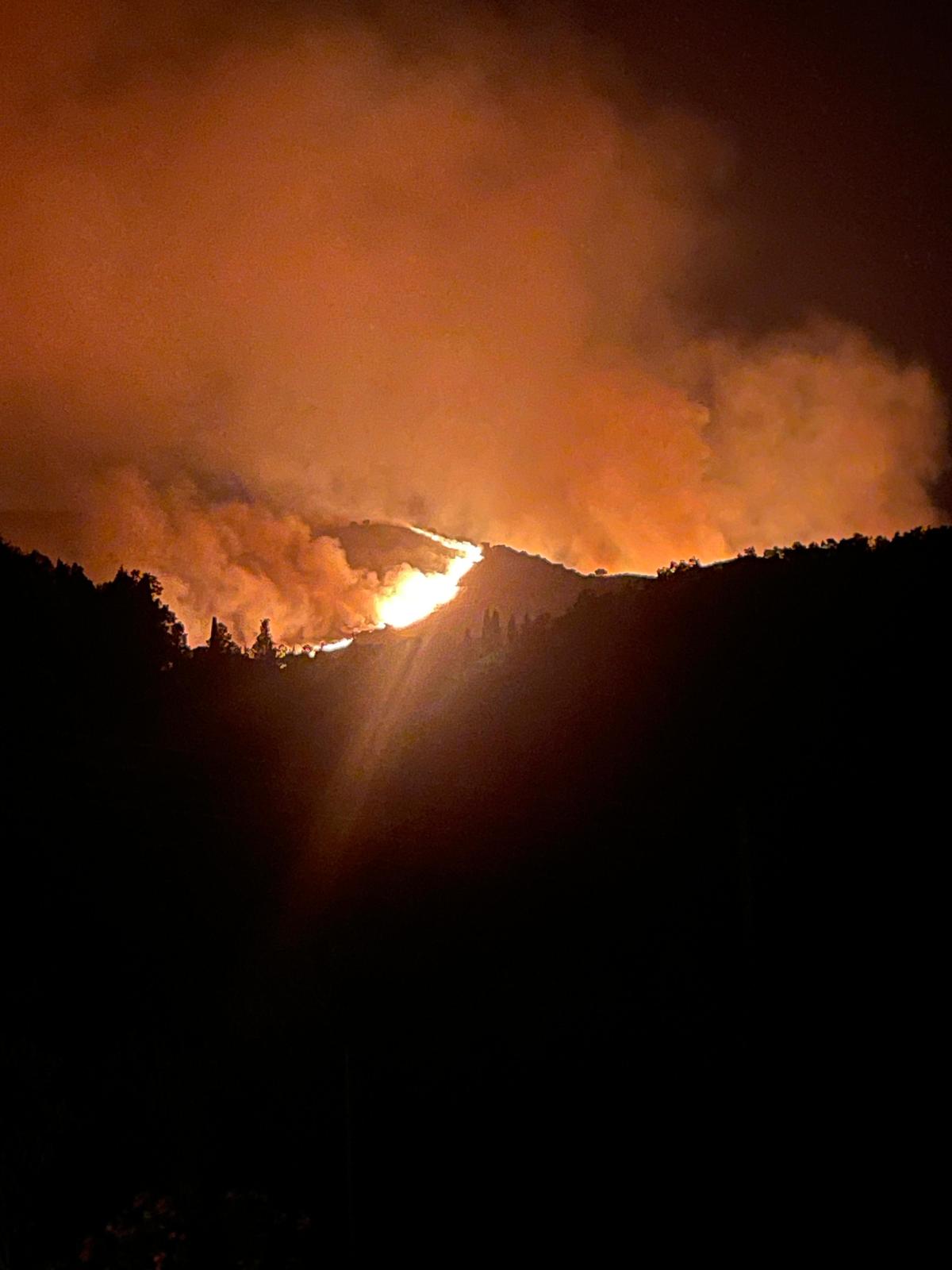UK faces more 40C summers and wildfires but it’s not prepared to take the heat, climate experts warn
Summer of 2022 could be a grim ‘sign of things to come’, a climate change researcher has said
Your support helps us to tell the story
From reproductive rights to climate change to Big Tech, The Independent is on the ground when the story is developing. Whether it's investigating the financials of Elon Musk's pro-Trump PAC or producing our latest documentary, 'The A Word', which shines a light on the American women fighting for reproductive rights, we know how important it is to parse out the facts from the messaging.
At such a critical moment in US history, we need reporters on the ground. Your donation allows us to keep sending journalists to speak to both sides of the story.
The Independent is trusted by Americans across the entire political spectrum. And unlike many other quality news outlets, we choose not to lock Americans out of our reporting and analysis with paywalls. We believe quality journalism should be available to everyone, paid for by those who can afford it.
Your support makes all the difference.The UK faces another 40C summer and an increased threat of wildfires due to climate change but the country is still woefully unprepared, experts warn.
Wildfires continue to blaze across the Greek islands of Rhodes and Corfu for a seventh day, amid a heatwave sweeping southern Europe.
Other parts of the world have similarly been hit by extreme weather conditions this year. Parts of Southeast Asia sweltered after a “once-in-200-years” heatwave gripped the region in April, and Canada has seen over 4,000 wildfires this year.

June 2023 was the world’s hottest month on record, as the director-general of the World Health Organisation Tedros Adhanom Ghebreyesus warned the “climate crisis isn’t a warning”. “It’s happening,” he tweeted, earlier this month.
A professor of climate change science at the University of Reading, Dr Nigel Arnell told The Independent that although the United Kingdom is unlikely to get as hot as some parts of the Mediterranean this year, it will get definitely get much hotter than Britons are used to.
He added that temperatures in the UK could hit record highs in the next couple of years, noting that another 40C summer is “perfectly plausible” and that the summer of 2022 could be a grim “sign of things to come”.
Nearly 3,500 people are thought to have died in the UK due to the heat last year, which saw recorded temperatures of over 40C for the first time as well as numerous wildfires. The Met Office is due to release its State of the UK Climate report for 2022 later this week, which will warn extreme heat and temperatures of more than 40C are becoming increasingly likely due to climate change.
“Heatwaves are very dependent on what you’re used to, what your infrastructure and housing is set up to cope with,” Dr Arnell said. “What we think of as a heatwave is likely to get way more frequent than we currently experience.”

The implications could be dire; Dr Arnell said people with pre-existing health conditions, such as diabetes and high blood pressure, are particularly vulnerable since the body needs to work that much harder to cool down – especially in buildings that aren’t designed for heat extremities.
“The most important thing is we need to try to understand as well as we can what the Met Office is telling us about our own weather systems and what precautions need to be taken in our own houses because if it’s extremely hot, you ought to keep out of the sunshine, but it doesn’t help if indoors it is very, very warm,” Sir David King, chair of the Climate Crisis Advisory Group said.
The country’s infrastructure simply isn’t built for such warm temperatures, Dr Arnell added, explaining a heatwave could cause “roads melting, railways buckling, electrical cables sagging, and data centres overheating” in the short-term.
Long-term, it could trigger an increased demand for electricity and water which could in turn lead to brownouts and water shortages.

Dr Candice Howarth, of the London School of Economics Grantham Research Institute on Climate Change and the Environment, said 2022 showed the UK isn’t ready for hotter weather and that local authorities, emergency services and utility companies “only just managed to respond” to the heatwave.
These warnings come as Rishi Sunak signalled a watering-down of certain government environmental policies “in light of some of the cost of living challenges” on Monday 24 July.
The prime minister on Monday 24 July said he didn’t want to “hassle” families with extra costs and his government would pursue net zero policies that were “proportionate and pragmatic”.

Climate science experts argue that switching from natural gas to renewable sources of energy, for instance, could reduce the impact of fossil fuel inflation and help families struggling with skyrocketing energy bills in the long run.
These benefits would be felt most strongly by low-income households, according to the Resolution Foundation. According to a 2022 briefing by the think tank, the poorest tenth of families had to reduce their spending by three times as much as the richest tenth in order to afford their energy bills,
“Dealing with climate change is not a nice thing to do after you sort out the cost-of-living crisis; it’s a way of sorting out the cost-of-living crisis,” Dr Arnell added.




Join our commenting forum
Join thought-provoking conversations, follow other Independent readers and see their replies
Comments